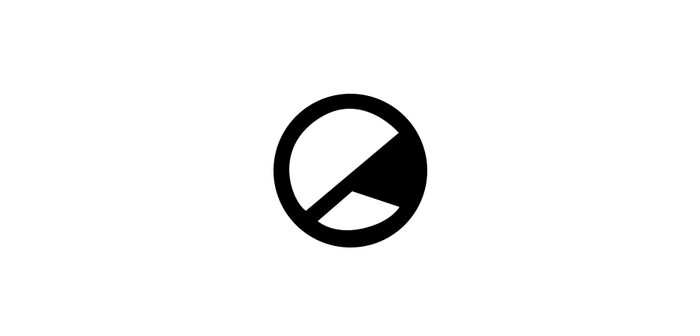Charlie Brooker strikes again with the long-anticipated fourth season of Black Mirror. All six episodes launched on Netflix back on the 29th December 2017, leaving new fans and devotees alike to pass their own judgement on whether they would binge-watch every single episode (to inevitably spark every intrusive thought and paranoia-induced existential crisis at once) or draw out the emotional roller-coaster and reflect on each of the gripping, grim, and downright ghastly, one harrowing episode at a time.
Brooker has stressed numerous times that the initially seemingly anti-technology Black Mirror episodes are not curated to incite disgust for gadgets and the internet, or present a cautionary tale of the dangers of obsession with them. Instead, Black Mirror is designed to convey a reflection of the human condition through technology – hence the title of the series. Our deepest darkest natures, desires and vices are exemplified by the technology with which we choose to govern our lives. The trajectory of some episodes follows the general idea of seemingly innocuous, progressive gizmos which have been patented to make life (or death) easier being presented in a favourable light, until the depths of human nature transpire, and then, as John Hamm’s shady character from S2’s ‘White Christmas’ puts it, we see the ‘price of progress’.
From S4’s trailer, it is apparent that Brooker has indulged in ample genre crossover and fantastical conceptualisation, no doubt an advantage of Netflix’s more lenient episode run-time allowances and budget boost. Some berated the Netflix move, however, accusing the series of becoming Americanised. Nonetheless, fans of the show have come to expect the unexpected, and the accolades received for the last three seasons for the ingenuity of Brooker’s brain child are testament to the gravity of the anthological thriller. So how does Season 4 compare?
It kicks off with the kitschy, Star Trek-reminiscent ‘USS Callister’. Space fiction had been as of yet unexploited by Black Mirror, yet Brooker’s execution of the brightly coloured latex and Milky Way-meddling tropes was flawless. We are re-introduced to the idea of ‘cookies’ but in a completely novel concept, where our stereotypical gamer geek goes home from the mundanity of the day job every evening to indulge in a sci-fi simulation in an alternate world where he is treated like a king. This is another episode that plays on our moral compasses – there are several references to the idea of ‘cookies’ being ‘just a bunch of code’, but when these cookies adopt all of the mannerisms and emotions of their real life human counterpart, where do we draw the line between sentience and a digital simulation?
The second episode, ‘Arkangel’, explores a device that allows parents and guardians to constantly monitor their children by seeing the world through the kids’ eyes, and even being able to determine their vitals and setting ‘controls’ on sensitive content. Another successful cinematic genre is exploited here with characters and settings embellished in an unmistakably 90s indie film design. Probably my second favourite of the series, despite the time-warped indie tropes it still provides settings that we are familiar with – the struggles of being a teenager, of being working class, of motherhood, of grief and of first love – and then adds a slight twist with the tech. Just like ‘Be Right Back’ we have what looks like a completely typical 21st century household but with the new-fangled technology, which creates a sense of verisimilitude.
Admittedly, it is starting to feel like a bit of an exhausted running joke when a device is painlessly inserted into the side of someone’s head for them to remark something along the lines of ‘Is that it?’ when everyone watching from home knows how pitifully oblivious this comment is. Maybe Brooker needs to invent some sort of electrolyte juice that can be imbued by participants to change it up a bit for the next season.
The third episode ‘Crocodile’ is a devastatingly bleak, Nordic noir tale to its absolute limits which to me was a low point of this season. A successful architect has harboured a dark secret for 15 years, and when it resurfaces, the woman embarks on a merciless killing spree to prevent the truth from transpiring. The technology, a sort of memory recollection device like S1’s ‘The Entire History of You’, is only vaguely elaborated; the ensuing violence and blood bath from an unlikely protagonist is unjustified and callous. It appears to try and play on the shock factor without providing grounds for the shock in the first place.
Episode 4, ‘Hang the DJ’, has already received a flurry of rave reviews from fans. Funnily enough it is probably the happiest ending out of the lot this season – to Black Mirror’s standards anyway. Many have drawn parallels to S3’s ‘San Junipero’. A Tinder-like device controls the entire romantic lives of our protagonists and their various partners, in which seems eerily like a universe designed solely for the pursuit of true love. No suggestive number swaps from well-meaning mutual friends or nightclub-facilitated hook-ups, the ‘coach’ takes users through a series of formulaic steps in order to find ‘The One’. Although it might make true love cynics scoff, our very likable protagonists rebel against the system, and find true love within one another in the end after a string of unfulfilling and painfully incompatible matches.
‘Metalhead’ is the fifth instalment of this series, which for me completely fell flat. Conceptually, there was nothing substantial to chew on. There was minimal dialogue, minimal characters, minimal, well, everything. It was even, uniquely to Black Mirror, shot in black and white, and by the end I was begging for the colour to come back so I had something exciting to watch. Ironically, the shortest episode in the whole of the Black Mirror anthology, wrapped up in a record-breaking 41 minutes, dragged out the longest. The simplicity and inertia of the episode might appeal to some viewers but I was only relieved to be moving on when the credits rolled.
The season finale, ‘Black Museum’, is an ode to the show’s meta-universe, a delight for die-hard fans, but also seems to imply the impermanence of a series designed to make mountains out of (luckily as of yet unperturbed) molehills. It follows the tale of Nish (Letitia Wright), who purportedly comes across a crime museum in the middle of a desert whilst waiting for her car to charge. The curator of the museum’s collection is Rolo Haynes (Douglas Hodge), purveyor of twisted technological trickeries; a creepy ex-business owner whose exhibition hosts devices and artefacts from various crimes committed with them. The episode cleverly weaves a trilogy within the 69-minute confines, each as compelling as the other, and makes reference to all the gadgets we’ve seen across the four seasons of Black Mirror thus far. You automatically wonder whether this feels like a send-off; a gallery of all of the show’s previous exploits immortalised in glass displays does not seem to lend to there being any more to the story. There is also a huge debate in the Black Mirror fan-base regarding which episodes occur in the same realms – is the museum designed to elucidate the idea that all of the settings we see in the episodes occur concurrently?
Overall, Season 4 carried Charlie Brooker’s cautionary flag up high, introducing novel concepts for the viewer, and executed in inexhaustible twists and thrills, which really highlighted the plasticity of Black Mirror’s remits and its capacity to explore multiple cinematic themes and genres. With the majority of episodes being strong and memorable, Season 4 did not disappoint. With any luck, Brooker’s creation has plenty of ammo left, and there will be another season in the pipeline to feed the nihilist in all of us.
All 6 episodes of Black Mirror‘s fourth season (and all other seasons of the show) are available to watch on Netflix.




